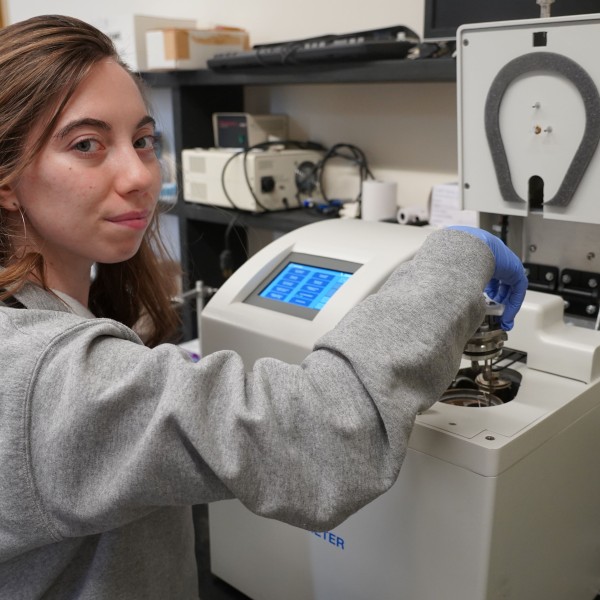Research Focus
Our research group actively leads the development of the Cornell Accelerating Livestock Innovations for Sustainability (ALIS) program.
The research and education programs that we champion explore the realms of nutrition, nutrient utilization, energetic efficiency, and milk production of ruminant animals. We are establishing state-of-the art research facilities and equipment to study energetics and gas exchange in cattle as a means to enhance lactation efficiency and reduce greenhouse gas production from dairy production systems. This includes a unique respiration chamber system to perform indirect calorimetry, methane monitoring tools at our Cornell Dairy Research Center for feed additive evaluation studies, and analytical tools to define the conversion of gross dietary energy to net energies for maintenance, growth, and lactation.
To develop next-generation solutions for the betterment of animal health, performance, and our environment, we strongly adhere to the study of whole animal physiology and nutrition. We are ramping up efforts to define how feed additives and other approaches are a means to reduce enteric methane production. Defining the “mode of action” for any such approach is of critical importance.
We recognize that past scientific approaches require refinement to ensure that any technological advancement has meaningful positive impact on animal food security and our environment. We also realize that any such technology must benefit the wide array of animal production systems on our planet. This is why we are actively leading growing efforts to enhance the nutrition of cattle and buffaloes in India and beyond, while reducing enteric methane production.
Animal scientists must engage with consumers every step of the way to ensure that misinformation is minimized and sound decisions that impact humanity and the animals in our stewardship are not harmed. Therefore, we actively seek opportunities to stay engaged and inform communities about our efforts and questioning.
Recent Op-Ed material written by Dr. McFadden:
Cows are not the new coal – here’s why https://thehill.com/opinion/energy-environment/586052-cows-are-not-the-new-coal-heres-why/
Hold off – for now – on feeding seaweed to cows to reduce methane https://thehill.com/opinion/energy-environment/592243-hold-off-for-now-on-feeding-seaweed-to-cows-to-reduce-methane/
Cow burps have a big climate impact. Solving that is harder than you’d think https://time.com/6251162/cow-burps-climate-impact-methane-emissions/
Mitigation of enteric methane emissions: How can we speed up progress McFadden et al (2022) SWNC




